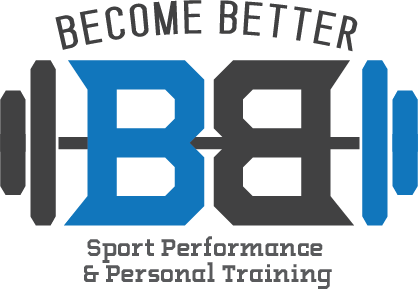What is a Muscle Cramp? Can you Avoid it?
If you only want the “To-Do List To Avoid Cramping” skip to the bottom
During the warm summer months, it is pretty common to suffer from muscle cramps. There are a number of activities done outside such as yard work, playing with kids, training/working out or playing in an outdoor volleyball tournament. This leads to many questions such as, why do cramps happen? What exactly is a muscle cramp? How can they be prevented? We will break down what is really happening during a muscle cramp, and how we can try to prevent them from happening.
First off, what is a muscle cramp? Most would say it is a spasm or a painful tightening of a muscle. This is true, but it really doesn’t explain what is actually happening. A muscle cramp is a strong, painful contraction, or shortening, of a muscle that comes on suddenly and lasts from a few seconds to several minutes. This is why stretching (lengthening) the cramped muscle can give instant relief (although that relief might only be temporary). Muscle contractions are normal, it’s how we function in everyday life. However, a cramp is an involuntary contraction that will temporarily inhibit you from moving around.
Electrolytes and Cramping
Proper muscle function is created by having the right electrolyte balance. Your body does this pretty well on its own when you are well hydrated. (For more information on staying hydrated, Click Here to read an article we wrote a couple weeks ago). The Electrolytes important for muscle function are Sodium (Na), Potassium (K), Calcium (Ca), Magnesium (Mg), and Chloride (Cl).We will talk about some of these briefly below.
Sodium and Potassium are both important for nerves to function, and nerves are what tell muscles to work. Sodium and Potassium move in and out of muscle cells when they contract and relax. Sodium can also help keep the body hydrated, especially when you’re sweating because you lose electrolytes when you sweat, mainly Sodium. Since Sodium is in so many foods, you are likely not deficient and won’t need to look for this nutrient. Sports drinks will typically have this in it which can help keep you hydrated as well.
Examples of Foods High in Potassium: Yogurt, Avocado, Spinach, Lentils, Oranges, Bananas, Beetroot and Potatoes
Calcium triggers muscles to contract, and Magnesium helps them to relax. Don’t take that as Calcium will cause cramps though. You still need it to function optimally. When sufficient magnesium is in the system it is used to help a muscle relax after a contraction is performed. This is why it is important to have this electrolyte in your body in the right quantities. It is hypothesized that Magnesium supplements could help decrease cramps, but that hasn’t been clinically proven. Still, it wouldn’t be a bad idea to make sure this electrolyte is prevalent in your diet.
Examples of Foods High in Magnesium: Almonds, Spinach, Banana, Cashews, Pumpkin Seeds, Avocado, Brown Rice and Edamame
Fatigue and Cramping
Hydration and electrolyte balance are important in making sure your body is functioning optimally. However, that alone won’t guarantee you are safe from muscle cramps. Fatigue may also be a culprit. When your body gets tired it doesn’t operate as well as it should. So if a muscle is being used over and over it may become more susceptible to cramping. Smaller muscles, such as the calves, tend to cramp more often than the larger muscles of the leg because the larger muscles can handle a greater workload.
Dehydration can lead to fatigue as well which could also exacerbate the issue. Which is another reason why staying hydrated is important. To fight fatigue it is obviously important to be well rested. You also want to make sure that you are eating enough. If you don’t have enough food, you don’t have energy to handle the work and fatigue will set in. Carbohydrates are especially important since they are most readily available as energy for the body.
Another way to fight fatigue is to get in a good exercise routine. First of all, a body will always funcion better when it regularly exercises. Secondly, if your body is stronger, then it will be able to handle workloads much better, and therefore not get fatigued.
Conclusion
Muscle cramps can not be completely avoided. However, if you hydrate and keep your electrolytes in check, stay well rested, keep your energy up with the right foods, and exercise to keep your body functioning at its best, then you may be able to avoid muscle cramps in comparison to others.
To-Do List To Avoid Cramping
Drink lots of water to stay hydrated
This starts the days before competition because if you go into an event already dehydrated, then it will only be made worse as you go on.
Drink a giant glass as soon as you wake-up.
Drink periodically throughout the day. 4-6 oz at a time gets absorbed well.
Drink extra between longer rest periods
Keep a diet high in electrolytes, especially Magnesium and Potassium.
Consider a Magnesium supplement before bed. Of course check to make sure this doesn’t conflict with other medications
A well balanced diet with fruits and vegetables with minimal “junk food” is ideal
Avoid Fatigue at all costs
Get plenty of sleep
Eat well. Especially carbohydrates during competitions to keep your energy up.
Consider starting a good strength training or at least exercise routine to get your body stronger.
If you do start cramping
Stretch the muscle to give relief. You don’t need a professional for this.
Drink water and get some electrolytes into your system. Note that this will not help immediately.
Give the muscle extra rest time before trying to continue the activity.

